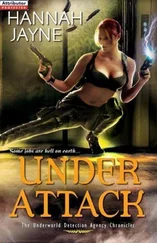I now had the feeling that nothing could touch us – a thing I never felt in a house. At the top of Blackwall Reach a bomb fell fifty yards ahead of us. I ducked down behind the wheel, I know, but truly I felt no fear and this delighted me. We delivered our wire at Woolwich – I hope it was some use – and came back through the smoke to Westminster.
On the shore of North Woolwich adjoining King George V Dock, residents had the terrifying ordeal of being trapped between the dock fires on one side and a row of factories ablaze on the other. Debris spilled from burning buildings, impeding the passage of fire engines and rescue vehicles. There seemed no escape as families rushed through the streets, found their way blocked and agitatedly ran back again. Some sought cover in the public shelter at the Oriental baths – until that was hit by a bomb. The entire population of the area had to be got away as quickly as possible before they were engulfed by the flames. No vehicles could get to them, so, coughing and spluttering in the smoke, and in terror of the fire and the bombs, they groped their way on foot to Woolwich Pier, where they scrambled into small boats and were rowed to safety along the Thames. It was much the same for the inhabitants of Rotherhithe, trapped between walls of flame that were engulfing their houses by the dock walls and the river. While some managed to get to safety by road, others were evacuated by boat.
Kathleen Rylatt was a member of the Women’s Voluntary Service (WVS), started by Stella, Marchioness of Reading at the request of the then Prime Minister, Neville Chamberlain, in May 1938. Its original purpose was to recruit more women into the ARP service, but it was now called upon to help in almost any home front situation, no matter how hazardous. On the night of 7 September Rylatt was helping with the evacuation of residents of the flame-engulfed areas around the Surrey Docks. Five people had been found in the midst of the blazing buildings, unable to get out of their shelter as sandbags had fallen in on top of them during the raid. ‘The [residents] were horror-struck at the idea of leaving their homes. The road was literally burning and many of them had to be treated for badly-scorched feet.’ Rylatt led the terrified people to St Olave’s Hospital in Rotherhithe, where those who needed it were given first aid and everyone was comforted with blankets and cups of tea. The leader of a stretcher party who watched the procession streaming out of docklands was ‘absolutely amazed. They seemed to come like an army marching and running … they looked in a very bad state … dirty and dishevelled. Many had superficial cuts and their skin was pitted with tiny slivers of glass from blown out windows … and all had a “ghostly pallor” since they were covered in plaster dust from falling walls.’
Bert Purdy, an ambulance driver stationed at Moorgate, was just about to start his meal of tinned salmon and a cup of tea when the raids started. He abandoned his food and set off with the rest of his crew. ‘It was chaos, buildings, houses all in a collapsed condition. At times my driving was erratic, I was driving up and down the bomb craters. We saw several mutilated bodies lying in the road. At one point we stopped and moved several limbs and two bodies to a point off the road, covered them with sheets of corrugated iron, intending to remove them later. It was terrible – people trapped, severely injured. People were lying about everywhere. We began to collect the people, render first aid if and when possible; take them to Poplar Hospital. Private cars were waiting outside the hospital for attention. We saw patients with severe head injuries lying on the roof of the cars, blood running down the back window … We worked hours; removed patients to Poplar, Mile End and London Hospitals. It was terrible … so unexpected and tragic.’
At one point in that terrible night the brother of Gladys Strelitz, who lived in East Ham, urged his sisters, ‘“Come on girls, get all the children’s clothes in a bag, and we’ve got to get out of London, there’s a lull.” And so we got in this bus, and we went to Bow. And when we got to Bow the bombing was going so badly that the conductor pulled the bell and said we wouldn’t go any further. So the only place to go was to run into the crypt under this big church. And there the sight that met my eyes, it overcame me. Because there was people praying, and crying and asking God to help us, because there was bombs going on and the crypt … was actually shuddering … It was too much for me, I just passed out.’
The Communist journalist and typographer Alan Hutt, at the time assistant to the editor of the cooperatively-owned Reynolds’ News (he later rejoined the Daily Worker , which had employed him at its inception in 1930), had been sent down to the shelter at 4.30 that afternoon, as he and his colleagues were arguing about whether the caption to a photograph of roadblocks damaged by an attack in south London the previous day – ‘Knocked ‘em in the Old Kent Road’ – was insensitive. ‘Not funny when people’ve been killed,’ one objected. All that night as the journalists were trying to put the paper to bed, they were sent down to the shelter again and again. ‘Damned nuisance,’ thought Hutt, until he saw the cause of the alarm from the roof.
I can see the fire along the waterfront and a rolling bank of grey smoke twice as high as the barrage balloons. Estimate distance and plot it out on the map which indicates Millwall, Surrey Docks as the beginning (infinite arguments in the office, but it turns out that this is right). Both sides of the river were plastered as far as Woolwich and the fire stretched for miles – eight or nine I shd. say. As dusk fell about 9 o’clock, the sight from our roof was incredible, a fantastic Gustav Doré piece, a gold and grey smoke-canopied flaming glow stretching thickly as far as one cd. see, the skyline silhouetted sharply black against this infernal Technicolor piece. Blackout was dead for the rest of the night and the bombers came back by the light of the fire to blast the East End … David has got a magnificent shot of the fire from London Bridge but the censor refuses to pass any pictures – ‘nothing that will confirm the enemy’s claims’… Jenkins goes to the Borough and gets an awe-inspiring view, also seeing the folks trooping to the Southwark tunnel in their thousands. We have to fight to get his stuff in the paper, for the new editor, jittery and helpless as usual says we’ve no way of getting this to the censor; but then he doesn’t want to send anyone out in this – leave it to the agencies – they’ve got special passes blah blah. O God O Fleet Street …
The fire, which has gone down a bit, picks up fiercely and at 1am towards the east there is a leap of flame and … clouds of black smoke. A big fire … We’ve all had a scornful sneer over the Private & Confidential Memo to eds [editors] giving a MoI [Ministry of Information] interview with the PM – optimistic stuff … ‘this has been expected … damage may be somewhat serious from a local viewpoint, but seen on the background of our general war effort &c & c … ‘
All Clear at 4.50; a coffee at the milk bar, a taxi to Kentish Town, & a rambling walk home through the dawn, the fire glow melting strangely into the light of day.
A young woman, Ida Naish, was caught in the raid on her way home to East Ham from visiting a friend. When she had arrived at Euston after hours of delays and detours, the station was deserted. ‘I came out into the street and there was no sign of [her mother, who was supposed to be meeting her]. The fire was getting steadily brighter, and overhead there were sounds of gunfire with an occasional dull thud in the distance as the bombs dropped. I have never felt so alone in my life.’ She managed to get to Aldgate, but
Читать дальше












